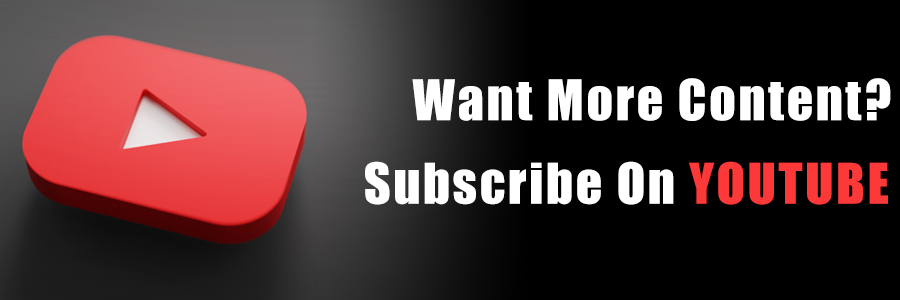The Gay Narcissist and I went on one last trip together about three weeks before the Final Narcissistic Discard.
I knew something was deeply wrong in our relationship as we packed our bags and got ready to go, but I clung to a deep and dark hope.
I could feel the end approaching, despite all of my denials. I could sense doom waiting for me around every corner, and I remember what it felt like. It was true anxiety. I was jumpy, my heart was always racing, I barely had appetite, and I was forever analyzing the words of the Gay Narcissist.
The behavior of the Gay Narcissist during the trip was telling. It was a group trip, so he was deferential toward me when he had to be, but otherwise took any and every opportunity to steer clear.
I was terrified of upsetting him; I did everything I could to please him and keep him at ease. I dutifully gave him directions when he needed them. I went out of my way to pay for stuff. I made sure his clothes were washed and dried.
The Gay Narcissist didn’t care. He barely stomached my presence. He wanted me gone during that trip—and totally erased from his life. Judging by how he acted, there was no greater ball and chain for him than me.
I absolutely could not handle that reality. It made me want to burst into flames. So, I soothed it with empty words.
There were times I’d find a private moment when no one was around, and I’d pace the bedroom reading text messages the Gay Narcissist had recently sent me. They were reassurances saying we were just rough spot and figuring stuff out, but he wanted me to know he loved me, above all else. We’d figure it out together, and I just needed to give him some time and space to think.
This is the true him, I thought. I just need to hold on and believe in him.
I decided to trust his words and ignore his actions.
Insane And In-Charge Emotions
The push and pull of believing what was going on versus denying reality pushed me throughout the entirety of the Gay Narcissistic Relationship.
But at the end of it all, when the Final Discard was looming large, this vacillation was overwhelming and caused an extreme amount of psychological distress. It felt like my brain was caving in, and the only way I could deal with it was to take a side and believe in it unflinchingly.
Never in my life have I experienced such a level of cognitive dissonance as I did during this time in my life. Prior, I was always able to rationally parse out my problems and summon up the will to make some kind of change.
But not in the face of the Final Discard.
My emotions were in charge—and they were insane.
I refused to believe the Gay Narcissist’s actions. Instead, I accepted his words as scripture. And the fight between actions and words has always been a point of weakness for me; I suspect it’s an issue with many others who struggle in dysfunctional and toxic relationships with narcissists.
I cite the late Jackson MacKenzie’s book often, and for good reason. Psychopath Free: Recovering From Emotionally Abusive Relationships With Narcissists, Sociopaths, And Other Toxic People is an absolute must-read for anyone struggling with narcissistic abuse. I encourage you to buy the book using this link, as it will help support my independent writing.
MacKenzie has a section where he specifically explores cognitive dissonance, and how it can lead us astray when moving on from abusive relationships.
MacKenzie explains cognitive dissonance in Psychopath Free as this:
It’s a state of mind where your intuition is telling you two competing things. It’s totally natural after a psychopathic relationship, because you’re used to repeatedly being told things—instead of seeing them with your own two eyes, or feeling them in your heart.
You constantly heard the psychopath make sweeping declarations of love and devotion, but you never actually felt them. You fondly remember the dreams you shared with them, and the future you planned together—but obviously those things didn’t happen.
So what do you believe? Their actions or their words?
During the relationship, you probably spent a lot of time with their words. Cherishing them, idolizing them, analyzing them, and ultimately distrusting them. But despite your intuition telling you something was wrong, a part of you still desperately wanted to believe in the manufactured soul mate.
Jackson MacKenzie continues to say that the fight against cognitive dissonance is where our resolve usually weakens and we start giving second chances instead of going no contact and walking away for good.
Because these individuals have done such a good and thorough job of warping our perceptions and instincts, the internal tug-of-war we experience from cognitive dissonance can lead us astray.
We start making excuses in favor of our abuser.
Maybe we’re wrong. Maybe it wasn’t that bad. Maybe he or she didn’t really mean it the way we heard it. Maybe we’re overreacting.
This is all cope. It’s deeply uncomfortable admitting we let such a bad actor into our life, but once we do exactly that—admit it—we can accept our mistakes, fess up to our fallibility, and start to move on.
“I Meant Them At The Time”
It was nothing but cope as I paced back and forth reading those pseudo-loving text messages from the Gay Narcissist on that final trip.
Because I really did know all of the Gay Narcissist’s words were trash. He was a liar and a manipulator. He did not care if his words contradicted themselves minute after minute, so long as he got what he wanted.
I even confronted him about it after the Final Narcissistic Discard happened; the truth of the New Supply was out in the open, and the Post-Discard Days were upon me. I told him what I did during that vacation, how I paced reading his assurances of love and commitment…despite writing them while having an affair.
He looked at me with a blank and dopey expression.
“Well, I meant them at the time,” he said after awhile.
Aw, shucks, well then all is forgiven, I guess?
That’s certainly how he felt about it.
But not me.
It was proof of how empty a man’s words can be and how his actions will always tell on him.





